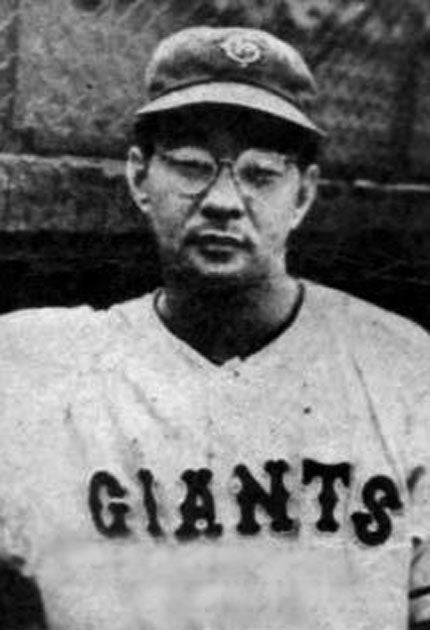Wally Yonamine: Sportsman who fought prejudice in two sports and in two countries

Your support helps us to tell the story
From reproductive rights to climate change to Big Tech, The Independent is on the ground when the story is developing. Whether it's investigating the financials of Elon Musk's pro-Trump PAC or producing our latest documentary, 'The A Word', which shines a light on the American women fighting for reproductive rights, we know how important it is to parse out the facts from the messaging.
At such a critical moment in US history, we need reporters on the ground. Your donation allows us to keep sending journalists to speak to both sides of the story.
The Independent is trusted by Americans across the entire political spectrum. And unlike many other quality news outlets, we choose not to lock Americans out of our reporting and analysis with paywalls. We believe quality journalism should be available to everyone, paid for by those who can afford it.
Your support makes all the difference.Wally Yonamine was a sportsman whose career forced him to face prejudice in two separate sports, on two separate continents, and for opposite reasons. In 1947, playing American football for the San Francisco 49ers, the first Japanese-American in the professional game, he faced considerable resentment resulting from the recently-ended war against Japan. And as the first foreigner to play baseball in the Japanese major leagues, he was referred to as the "Japanese Jackie Robinson", after the black star who integrated American baseball, and faced a similar onslaught of racial abuse and harsh treatment.
Kaname Yonamine was a first-generation American – to Japanese a second-generation Nisei – born in 1925 to Japanese-born parents who worked on a sugar plantation in the village of Olawalu on the Hawaiian island of Maui. He later adopted the American first name Wallace. Still regarded as one of Hawaii's greatest athletes, he was so good on the gridiron that as a teenager he moved to Honolulu to play for Farrington High School, whom he led to the island championship. After graduation he joined the semi-pro Hawaiian Warriors, and while barnstorming in California caught the eye of the 49ers, then part of a rival league which would eventually merge into the NFL. He signed a lucrative, two-year $14,000 contract at a time when many Nisei were still being returned to California from their wartime "resettlement" camps. Yonamine took considerable abuse for being "a Jap", particularly at the bottom of pile-ups after he was tackled. But a wrist injury saw him released before his second season, and he switched to baseball, signing with the San Francisco Seals of the Pacific Coast League, baseball's top independent minor league.
The Seals manager Lefty O'Doul had been one of the driving forces behind the popularising of baseball in Japan in the years before the war, and he suggested Yonamine try making a career there. O'Doul arranged for him to sign in 1951 for Tokyo's Yomiuri Giants, the country's dominant and most popular team, but Yonamine, who spoke no Japanese, found himself considered a typical American, and his style of play, especially his aggressive, gridiron-influenced base-running, offended crowds used to the more polite Japanese version.
More crucially, racial attitudes in Japan looked down on all foreigners (in the next generation, Sadaharu Oh, Japanese baseball's greatest hitter, faced constant discrimination because of his Chinese ancestry), and American Nisei were especially scornedbecause their parents were perceived as having turned their back on their homeland. Yonamine received death threats, had rocks thrown at him, and experienced isolation from some of his team-mates, particularly the Giants' biggest star, the fervent nationalistTetsuharu Kawakami, known as "The God Of Batting".
Despite his problems, which included the difficulty of adjusting to life in a country still rebuilding from the ravages of war, Yonamine was an immediate star with the Giants, notching an impressive .354 batting average. In 1954 he won the Central League's batting title and in 1957 he was voted the league's most valuable player. Every year from 1952-58 he was selected to Japan's "Best Nine", and his impact quickly changed the Japanese game, bringing in more competitive hustle and aggression. His path has been followed by almost 1,000 other American ball players, with a now-steady influx of Japanese players into the American major leagues.
But over all Yonamine's successs hung the shadow of Kawakami, who remained the team's star even when Wally outplayed him. When Kawakami was named manager in 1960 he immediately cut Yonamine, who signed with the Chunichi Dragons. He played two more seasons before moving into coaching, eventually becoming Japanese baseball's first foreign manager. In 1974 he led the Dragons to a Japan Series title, defeating Kawakami's Giants, who had won the previous nine championships in a row. Kawakami's biggest star was Oh, whom he always treated as a lesser player than his fully-Japanese team-mate, Shigeo Nagashima.
Yonamine coached or managed five other teams before retiring in 1988. He operated a pearl business in Tokyo, which he later expanded to San Francisco. Back home he sponsored the Hawaii state high school baseball tournament, and established a foundation to award college scholarships. In 1990 he became the first American elected to the Japanese baseball hall of fame. He returned to the ballpark in 2008, as coach and "player" with the Nagoya team in the Japanese Masters League; that same year Robert Fitts published Wally Yonamine: The Man Who Changed Japanese Baseball.
Wallace Kaname Yonamine, American footballer and baseball player: born Olawalu, Maui, Hawaii 24 June 1925; married (two daughters, one son); died Honolulu 28 February 2011.
Join our commenting forum
Join thought-provoking conversations, follow other Independent readers and see their replies
Comments